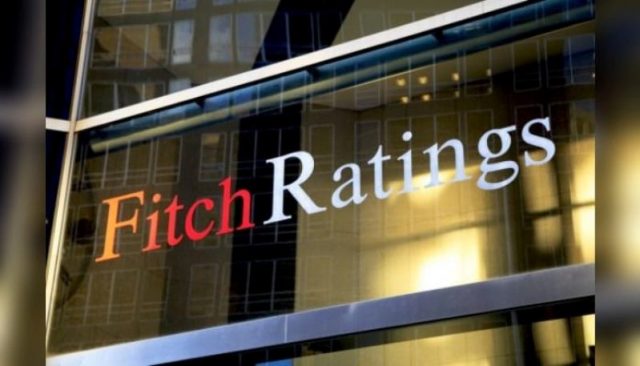SUN, NOV 05 2023-theGBJournal| Ratings agency Fitch has affirmed Nigeria’s Long-Term Foreign-Currency Issuer Default Rating (IDR) at ‘B-‘ with a Stable Outlook.
The rating is constrained by weak governance, structurally very low non-oil revenue, high hydrocarbon dependence, security challenges, high inflation, low net FX reserves and ongoing weakness in the exchange-rate framework.
However, the ratings agency sees President Bola Ahmed Tinubu’s reform steps in line with expectations, faster than they anticipated.
This, alongside the Nigeria’s large economy, a developed and liquid domestic debt market as well as its large oil and gas reserves influenced the Long-Term Foreign-Currency Issuer Default Rating and outlook.
Meanwhile, the Ratings agency raised key questions on the additional near USD32 billion of “FX forwards, OTC futures, and currency swaps”, which is recorded as an off-balance-sheet “commitment” and not broken down.
It also raised questioned on Nigeria’s plan to raise USD10 billion of FX. Both of which Fitch suggests is replete with ”lack of detail.”
Recall that the Minister of Finance, Wale Edun announced in October 2023 that Nigeria is expecting $10 billion in foreign currency inflows to ease liquidity in the foreign exchange market. Fitch questions whether that includes World Bank budget support loans of US$1.5 billion.
On the currency swaps, Fitch said, while this likely includes some non-deliverable contracts settled in naira and commitments of a longer tenor, it suggests domestic bank swaps with CBN are probably higher than the USD10-12 billion Fitch previously estimated.
”Nevertheless, we expect most swaps will continue to be rolled over, reflecting incentives for banks to invest the naira received in high-yielding sovereign securities and the sector’s limited reliance on swaps for FC liquidity, given sizeable FC placements with international banks.”
X-@theGBJournal|Facebook-the Government and Business Journal|email:gbj@govbusinessjournal.com| govandbusinessj@gmail.com










